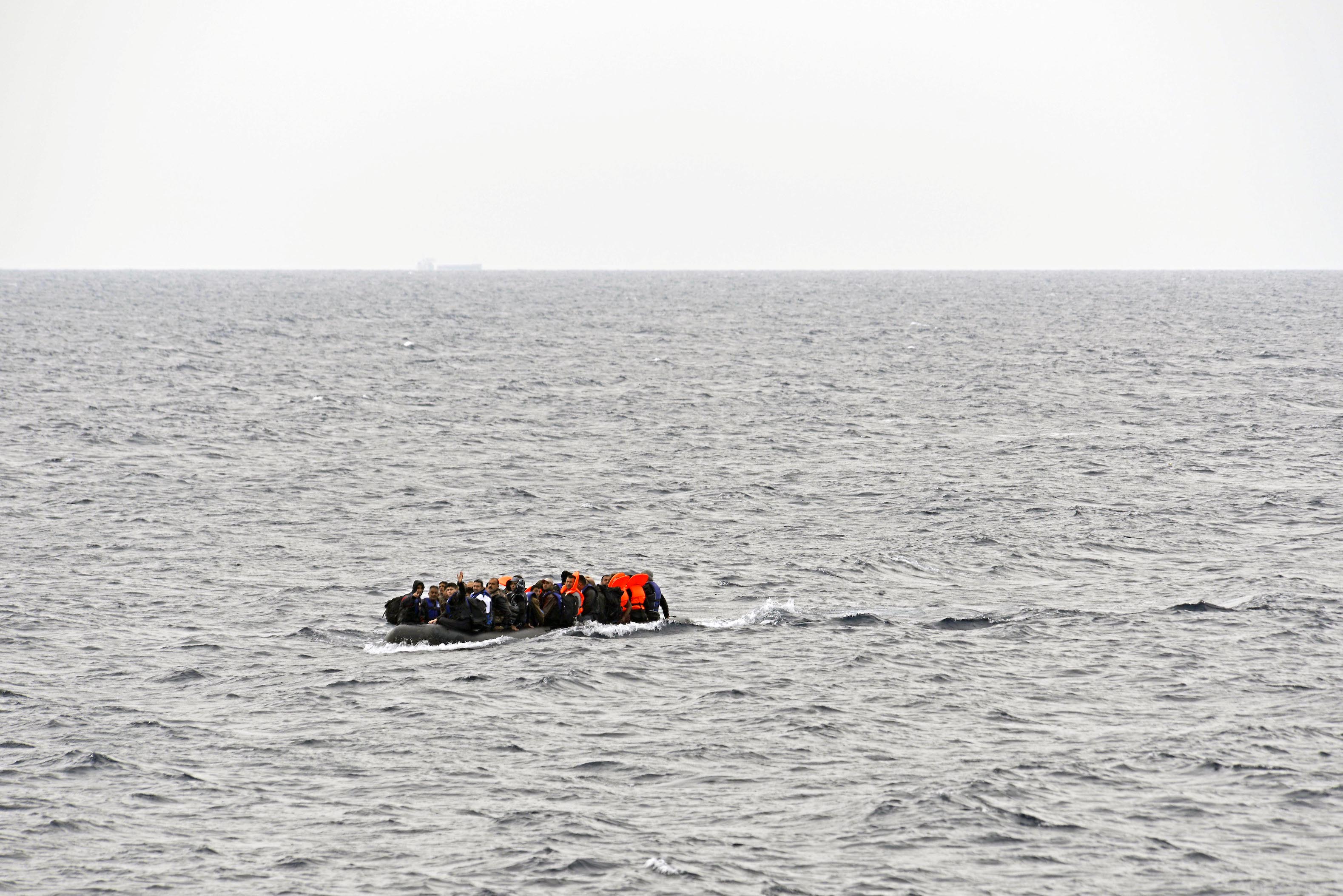In a visit today to Dover, Kent, the prime minister provided an update to the country on his vow to “stop the boats”.
Rishi Sunak made the pledge at the start of the year and in today’s update, six months on, he was hoping to show voters and his MPs that he is making progress on the issue.
He insisted the government’s small boats plan is “starting to work”, but added there is still a “long way to go”.
“In the five months since I launched the plan, crossings are now down 20 per cent compared to last year”, he said.


“I will not rest until the boats are stopped”.
On the asylum backlog, the prime minister said that “numbers published today show that the initial decision legacy backlog is down by over 17,000 and we are on track to clear it entirely by the end of the year”.
He added that arrests of illegal workers in the UK had “more than doubled” in recent months, and pointed to new figures showing the refusal rate of people making modern slavery claims to stay in the UK has tripled.
On arrivals from Albania, the prime minister said 1,800 people have been returned to Albania in the past six months and that the number of small boats arrivals from the eastern European nation have dropped by almost 90%.
Mr Sunak also announced further details of plans to move migrants out of hotels and into barges and former army bases.
He said the first asylum barge is due to arrive at Portland Port “in the next fortnight” and that the government had today secured two more barges to house another 1,000 people.
It comes as new polling has found that the majority of the British public thinks Rishi Sunak is doing a bad job in delivering on his five priorities.
Alongside “stopping the boats”, these include: “halving inflation”, “growing the economy”, “cutting NHS waiting lists” and “reducing the national debt”.
An Ipsos UK survey has found that more than 50 per cent of people think the government is doing a bad job on almost all of them
According to the poll, the public’s top priority is easing the cost of living (with 59 per cent listing it as important), this is followed by ensuring people can get NHS treatment more quickly (54 per cent) and reducing NHS waiting lists (51 per cent).
With the prime minister heading to Dover today, the poll found that “stopping small boats” and ensuring illegal immigrants were swiftly deported was a lower priority for the public. Only 29 per cent of those polled mentioned it, although it was a much higher priority for people who voted Conservative in 2019 than those who voted Labour.
Almost half of 2019 Conservative voters listed ensuring the swift removal of illegal immigrants as an important priority.
Sir Keir Starmer, during a visit to Somerset ahead of the PM’s speech, called for more migrant return deals to be agreed by the government.
Sir Keir said: “A deal with Albania is, of course, progress but we need many more returns agreements.
“Because at the moment the government has baked in a problem, which is because they haven’t got returns agreements with other countries, because they’re not tackling this upstream with cross-border criminal activity being absolutely dealt with and because they are not processing the claims quickly enough, they are building an ever-growing problem.”
He added: “All we’ve really had from the government though is the announcement of a policy that doesn’t work and then the re-announcement of the same policy, essentially.
“It often feels, I think, like Groundhog Day and meanwhile that’s costing a fortune for the taxpayer and there’s this growing sense of frustration”.
Speaking to Sky News yesterday, immigration minister Robert Jenrick said “The reason that [the UK is] returning Albanians is to deter people from coming in the first place, and that is succeeding”.
He added that the illegal migration bill, which returns to the House of Lords today, extends the deterrent principle by detaining and deporting anyone who arrived in the UK illegally to a third safe country, such as Rwanda, or their home nation.
“If we can do that, we will break the people smuggling gangs, we will deter people from crossing in the first place”, he said.
“And with respect to Albania, you only have to compare their proportion of those people crossing the Channel in the first quarter of last year to the first quarter of this year to see that this has been hugely effective in creating the deterrent that we have set out to.”
Meanwhile, The Times has been told by a Home Office “source” that ministers had “demented” assumptions about the deterrent effects of the illegal migration bill.
The Times details that officials were “despairing” about the practicalities of implementing measures in the bill, which the government hopes will be on the statute book by September.
The number of migrants crossing the Channel this year to the end of May is down by nearly 2,000 on last year’s total at the same point, from 9,575 in the first five months of last year compared with 7,610 this year.












